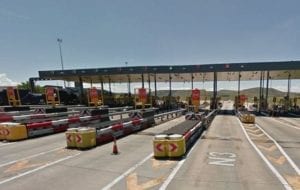The South African National Road Agency SOC Ltd (SANRAL) has dismissed what it calls “misinformation” concerning the Wild Coast Road; the reporting of a subsequent court case and the claims that the planned route could be changed. It also refutes the allegation that there is no environmental management plan and strategy in place.
“SANRAL disagrees with Cape Town-based law firm Cullinan and Associates’ assertions that the legal case was becoming complex, because we [SANRAL] followed an interlocutory application,” says Vusi Mona, SANRAL spokesperson. SANRAL says it was forced into legal action because it believes that, while Cullinan and Associates claim they are representing the legal interests of the local people, SANRAL says they have not shown that they have a mandate from the full Baleni, Sigidi and Mdatya communities. “We are aware that Cullinan and Associates represent the Amadiba Crisis Committee in legal matters. But the committee is not an applicant in the current court case, nor does it represent these communities,” explained Mona. Mona says the Amadiba Tribal Authority – on behalf of themselves and the communities of Baleni, Sigidi and Mdatya, whom they legally represent – withdrew as applicants in the current court proceedings against the Minister of Environmental Affairs in December last year. “At this point the sole remaining applicant in the current court case is Mr. Reinfored Sinegugu Zukulu, who, while a member and former spokesperson of the ACC, is named in his personal capacity,” said Mona. He added that the Wild Coast Road would follow the original route presented to the public and various decision-making authorities during the various environmental impact assessment processes. According to SANRAL, the plans had been set in 2001 and although possible alternative routes were examined from engineering, environmental and socio-economic perspectives, no better possibilities were identified. “The findings of independent EIA studies concluded that the original proposed route offered the best trade-off between maximising the benefits and minimising the negative consequences of the road,” Mona says. The route was not set and could not be changed without new studies being done, he added. Mona says concerns that engineering projects associated with the Wild Coast Road would affect the natural environment in an overly adverse manner were also groundless. “The approved route has been located along a predominantly degraded alignment well inland of the most sensitive areas of the Pondoland biome. SANRAL will put strategies in place to minimize or mitigate real or potential damage to the environment during and as a result of construction,” he explained.SANRAL says an agreement has been reached between SANRAL, EC DEDEAT, EC Parks and Tourism, the Department of Environmental Affairs and the Department of Forestry and Fisheries for a biodiversity offset arrangements.
It says these include: • the creation of about 15 000 hectares of new protected areas under the management of Eastern Cape Parks and Tourism. This conservation project is significantly larger than the actual development footprint of the Wild Coast Road. The exact locations and details of the new protected areas will be announced by EC Parks and Tourism as and when negotiations with the various affected stakeholders are concluded and are ready to be gazetted. • The long-term protection and viability of the Pondoland biosphere and its unique biodiversity; • Job creation through conservation, with the introduction of 300 jobs in the first three years, 160 jobs between the fifth and tenth years; and 50 jobs between years 11 and 20; • Search and rescue operations for protected and endangered flora prior to construction; • The appointment of an independent monitoring committee with oversight of SANRAL’s environmental management plan implementation during construction of the Wild Coast Road. SANRAL claims it is aware that the communities of Sigidi and Mdatya are divided by the proposed titanium sand mining project and their opposition to the N2 Wild Coast Road. Mona says SANRAL suspected that misinformation may have been spread within the communities, and that this would be addressed through direct engagement with the people. The agency says they would be given correct information on local jobs and opportunities, pedestrian safety, access to and crossing of the new road, the relocation and compensation of affected households, and the relocation of any graves with due respect to local traditions. “We must emphasise that the Wild Coast Road has no direct link to the proposed sand dune mining, and by opposing the road, these individuals and groups risk jeopardising a project that will have enormous positive benefits for both their communities and the entire Eastern Cape,” Mona concluded.






